Museveni says homosexuality is ‘danger to procreation of human race’ at Entebbe conference hosted by US anti-LGBTQ+ hate group
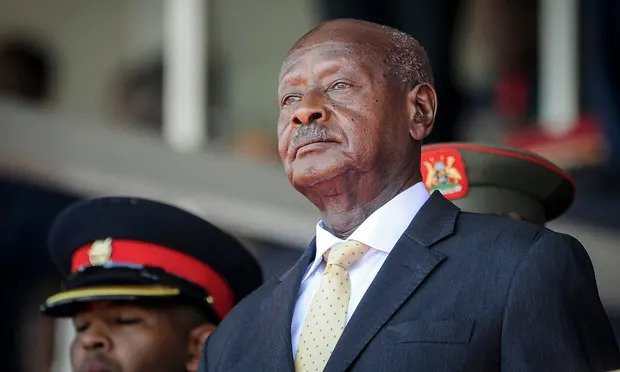
The Ugandan president, Yoweri Museveni, has called on African leaders to reject “the promotion of homosexuality”, suggesting he will sign into law a controversial anti-LGBTQ+ bill, which was passed by parliament last month.
The bill, which imposes the death penalty for “aggravated homosexuality” and life imprisonment for “recruitment, promotion and funding” of same-sex “activities”, has been widely criticised internationally, with the UN high commissioner for human rights urging the president not to sign it.
Speaking on Sunday, Museveni said homosexuality was “a big threat and danger to the procreation of human race [sic]”.
He said: “Africa should provide the lead to save the world from this degeneration and decadence, which is really very dangerous for humanity. If people of opposite sex [sic] stop appreciating one another then how will the human race be propagated?”
His comments followed a two-day inter-parliamentary conference held at State House in Entebbe on “family values and sovereignty”, attended by MPs and delegates from 22 African countries, including Zambia, Kenya and Sierra Leone. State House said British MPs had attended the conference, but was not able to name them.
The event was promoted by the Ugandan parliament, the African Bar Association and the Nigerian-based Foundation for African Cultural Heritage. Delegates could also attend the conference online, hosted by the US evangelical Christian organisation Family Watch International, which is defined as an anti-LGBT hate group by the Southern Poverty Law Center, a watchdog that monitors the far right. The president of Family Watch, Sharon Slater, who also chairs the UN Family Rights Caucus lobby group, spoke at the event.
Museveni praised Ugandan MPs for passing the anti-gay bill and vowed “never to allow the promotion and publicisation of homosexuality in Uganda, stressing that it will never be tolerated”.
A Ugandan LGBTQ+ activist, who asked to remain anonymous for their own safety, attended the conference via Zoom under a pseudonym. “They are drawing up an African strategy to fight homosexuality. They want their government heads to commit to what they called ‘the African position’,” the activist said.
The conference, held on Friday and Saturday, specifically called on Zambia, Tanzania and Ghana, which were visited last week by the US vice-president, Kamala Harris, to “reject American influence”, said the activist.
“They are calling on African countries to now seriously fight corruption, be self-reliant and break free from the western support.”
The Uganda government tweeted quotes from a Kenyan MP, George Peter Kaluma, stating that “a person proposing that there should be same-sex marriages or same-sex relationships is a person seeking to wipe out the entire humanity out of the face of this earth [sic]”.
The government also tweeted that Kaluma, who attended the conference, had said many African states were drafting laws similar to the one in Uganda, including Kenya, Ghana and Malawi.
Stella Nyanzi, a Ugandan feminist activist who was imprisoned for criticising Museveni, said she condemned “both the manipulative organisers and the gullible participants in the so-called family values conference”.
Nicolas Opiyo, a Ugandan human rights lawyer and campaigner, told the Guardian: “The wave of homophobia and transphobia in Uganda, and the region, has nothing to do with Ugandan or African values. It is a disguised campaign by American evangelicals through their local actors. Their campaigns have now been organised under what appears to be local professional entities such as Christian lawyers’ groups, parliamentary forums and so forth.
“Their claim about African family values is only a ‘dog whistle’, a hate campaign and an imposition of a narrow Christian worldview upon us all. Once again, the Ugandan gay community is a target of this misinformation, hate and culture wars.”
US VP Harris seeks billions for climate resilience across Africa
AP , Saturday 1 Apr 2023
Vice President Kamala Harris is pushing for $7 billion in private-sector investments to help Africa prepare for the effects of climate change.
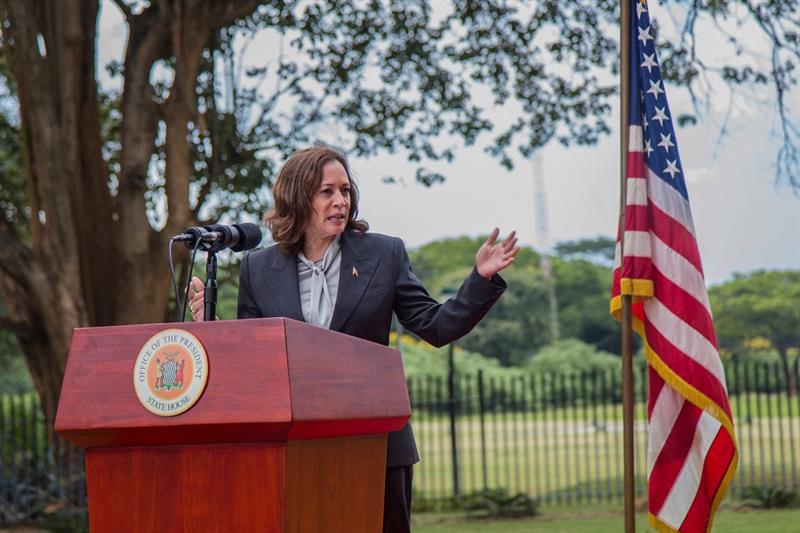
The announcement comes as she wraps up her weeklong trip to the continent on Saturday.
Harris plans to visit a farm outside Lusaka, Zambia’s capital, where workers are using new techniques and technology to grow more produce, part of her effort to demonstrate ways to secure food supplies despite global warming.
“The United States is committed to these types of innovative solutions to support climate adaptation, mitigation, and resilience,” she said Friday during a news conference with President Hakainde Hichilema.
Harris’ trip, which included stops in Ghana and Tanzania, is intended to advance U.S. efforts to make inroads in Africa, where China’s influence runs deep.
The $7 billion announcement is the biggest-ticket item that Harris has announced, but more work will be needed to follow through.
For example, African Parks, a nonprofit group, has committed to raising $1.25 billion over the next seven years in order to expand its conservation program. Another organization, One Acre Fund, plans to raise $100 million to plant 1 billion trees by the end of the decade.
The politics of climate change are complicated in Africa, which has contributed far less to overall greenhouse gas emissions than richer corners of the world such as the United States.
According to the International Energy Agency, 43% of Africans didn’t have access to electricity in 2021, and recent outages have sparked frustration.
In Ghana, Harris was questioned at a news conference about how the West can demand that Africa go green and forgo using its natural resources.
She also was pressed on whether wealthy nations would supply $100 billion annually to help poor countries cope with climate change, a commitment made under the Paris climate accord.
Harris said it is “critically important that, as global leaders, we all speak truth about the disparities that exist in terms of cause and effect and that we address those disparities.” She said there were opportunities in the “clean energy economy” that could help generate growth in Africa.
As for the money, President Joe Biden has requested $11 billion in his proposed budget to meet its international commitments.
“We are waiting for Congress to do its work,” Harris said.
S.Africa party officials in Russia for talks on new ‘global order’
AFP , Sunday 2 Apr 2023
South Africa’s governing ANC party said Saturday that it had sent senior officials to Russia to discuss “recalibration of the global order” with President Vladimir Putin’s party.
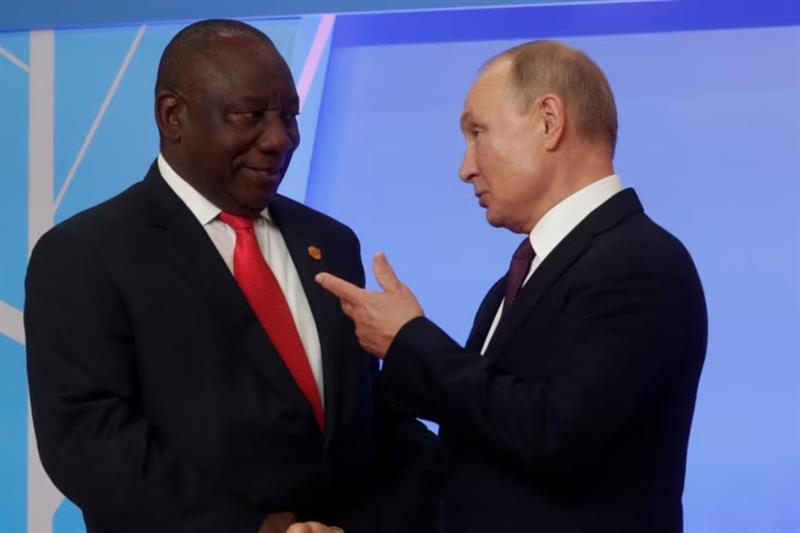
“The visit follows an invitation from United Russia Party, Russia’s largest political party and a longstanding ally and friend to the ANC,” the South African party said.
“The engagements… will include discussions on the recalibration of the global order to reverse the consequences of neo-colonialism and the previously prevailing unipolar world.”
Moscow has been looking for years to bolster its political and economic ties with countries across Africa, and on Friday, Putin signed off on a new foreign policy aimed at curtailing Western “dominance”.
South Africa, for its part, has refused to condemn the invasion of Ukraine that has largely isolated Moscow on the world stage, saying it wants to stay neutral and prefers dialogue to end the war.
The ANC delegation led by Obed Bapela, who heads the ANC’s international relations commission, arrived on Thursday and is expected to stay until Sunday.
South Africa is due in August to host a BRICS summit, the bloc grouping the emerging economic heavyweights Brazil, Russia, India, China and South Africa.
In February, South Africa hosted a controversial joint military exercise with Russia and China, while Russian Foreign Minister Sergei Lavrov paid an official visit to Pretoria in January.
South Africa’s ties with Russia date back decades, when the Kremlin backed the ANC in its fight against apartheid.
US-China tensions: How Africa can avoid being caught in a new Cold War
John J Stremlau, Monday 20 Mar 2023
China’s foreign ministry published a 4,000-word analysis entitled US Hegemony and its Perils on 20 February. It’s an indictment of alleged US foreign interference, intimidation and interventions that began 200 years ago.
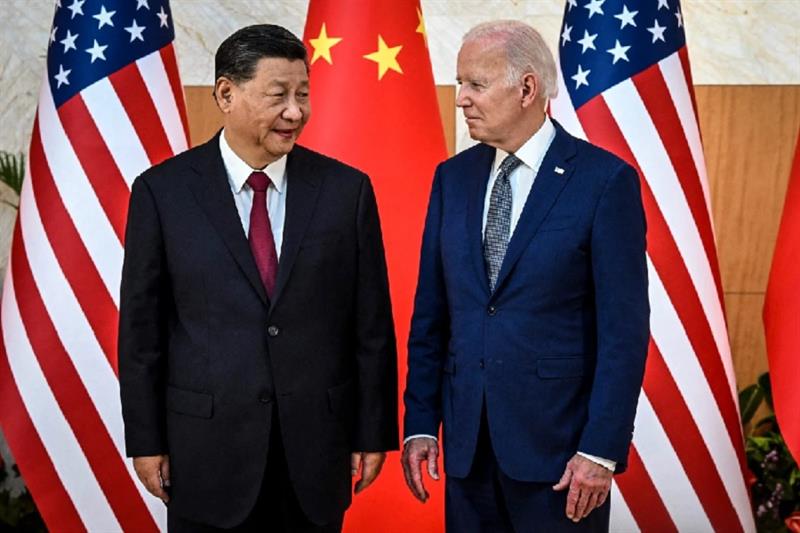
This was followed by President Xi Jinping’s accusation at the Communist Party National Congress in March that the US was pursuing an unprecedented global policy to contain and suppress Chinese development.
US official reaction to the Chinese accusations has been muted. But the recent US shooting down of an alleged Chinese spy balloon escalated tensions. There are fears that escalating US-Chinese tensions might threaten the independence of African and other nonaligned nations.
This essay seeks to contribute to an overdue debate among Africans about how to avoid being entangled in US-China global rivalry, while maintaining productive partnerships with both nations. It draws on my many years of teaching and research on Africa’s changing international relations.
I hope it will encourage other scholars and policy makers across Africa to assess the hegemony statement in the light of their own interests and values. Finally, this essay is intended to encourage debate about what each topic realistically implies for Africa continent.
The topics in the statement are:
– Political hegemony, (America) throwing its weight around
– Military hegemony, wanton use of force
– Economic hegemony, looting and exploitation
– Technological hegemony, monopoly and suppression
– Cultural hegemony, spreading false narratives.
Although Chinese rhetoric is harsh, the initiatives and interactions of China and the US in Africa under each heading illustrate my general belief that their competition in Africa has been, and can be, both peaceful and productive.
Political Hegemony
China’s indictment ranges from US efforts at hemispheric domination beginning in the early 19th century to fomenting the “colour revolutions”, non-violent protests that overthrew autocratic regimes in the three post-Soviet republics Georgia, Ukraine and Kyrgyzstan.
But, China’s vision of the US glosses over the volatility of US domestic politics. Domestic concerns can alter foreign policy, a leader’s ideology, and political and historical circumstances.
Domestically, China too has undergone several political upheavals since the civil war that brought the Communist Party to power in 1949. If China underestimates US domestic swings, US analysts may exaggerate the global impact of Chinese internal pressures.
During my election work for the Carter Centre in Africa, from 2006-2015, I was impressed by Chinese and American representatives able to seek common ground and learn from each other.
At higher levels of diplomacy, China and the US have used summits with African leaders to set broad guidelines of cooperation in trade and investment, climate, public health, building infrastructure and other areas.
These should help African leaders decide areas of comparative advantage for them, in dealing with the two major powers.
The Forum on China-Africa Cooperation differs from US initiatives, the most recent being the US-Africa Partnership in Promoting Peace, Security, and Democratic Governance. Neither major power appears to me to harbour hegemonic presumptions, as African leaders test their abilities to be productively nonaligned.
These high-level channels to both superpowers might yield more if African regional economic communities and the African Union made more concerted efforts to develop complementary and cumulative strategies for pressing African priorities.
Extending the US African Growth and Opportunity Act to ensure favourable access to US markets is one example. Managing debt obligations for China’s important “Belt and Road” investments in African infrastructure is another.
Military And Economic Hegemony
The differences in what Africa had to contend with during the US-Soviet Cold War and today’s US-China rivalry are most pronounced in areas of military and economic hegemony.
Neither China nor the US seem poised to use Africa to test political military resolve, as the US and Soviets did when they fought proxy wars in Angola during the 1970s, for example.
African national and multilateral bodies should lobby China and America to back African-led peace operations within African states.
Globally, economic interdependence between China and the US will remain vital for sustained growth and prosperity for both nations.
Presidents Joe Biden and Xi Jinping are committed to reviving their domestic economies. They both want greater equality, less corruption, and sustained growth. Neither appears to want or need to foment conflicts in Africa.
African governments rightly pursue support from both China and the US for regional integration and cooperation, such as the African Continental Free Trade Area.
Greater Chinese and US economic engagement in response to African collective appeals could also become a confidence building measure between China and the US. This rarely happened during the Cold War.
Back then, the US was aligned with European colonial powers and the apartheid regime in South Africa. The Soviets backed liberation forces. Today, such polarisation doesn’t exist.
The Chinese statement on US hegemony rightly notes the US is plagued by domestic violence and has a history of failures in military interventions. [US analysts acknowledge] this.
But US domestic resistance to new foreign military adventures became bipartisan and popular for the past decade.
African nations should hold America and China to account for their avowed commitments to respecting core UN principles of sovereign equality and territorial integrity.
Equally, they must hold Russia to account for blatantly violating those principles by invading Ukraine.
Technological Hegemony
Benefits and risks of new technologies are well known. Communication, data retrieval and collection, and artificial intelligence bring both promise and peril that Africa must navigate carefully.
This is becoming all the more pressing as progress in artificial intelligence accelerates. Neither China nor the US need to be hegemonic in making available technologies that spur Africa’s development.
More issues of contention need to be resolved with the help of scientists and scholars from China, US, and Africa. The availability of Huawei 5G is a particularly contentious issue.
Perhaps interested scientists and members of the African Research Universities Alliance could work with their Chinese and US counterparts to establish guidelines and mediation capabilities.
Cultural Hegemony
US crimes against Africans began in earnest in 1619 with the trans-Atlantic slave trade. Its sediments persist today.
But? The African diaspora has become a key political constituency of the Democratic Party. It is a fast growing demographic. In music, sports, arts, these Americans are invaluable conveyors of soft power in Africa.
China does not have similar ties with Africa. But, it has recently become more active culturally across the continent, as evident in its network of Confucius Institutes. China has also become the biggest donor of foreign scholarships, enabling future African leaders to study in China.
Graduates enrich African universities and, interacting with graduates of US institutions of higher education, represent potential channels to explore options for three way, useful collaboration in their fields of applied research.
Looking Forward
This essay reflects my belief in the value and prospects for greater African agency in response to rising tensions between China and America. I have used China’s indictment of alleged US hegemony only to debunk fear of Africa becoming a pawn in another Cold War.
There is no evidence I have seen to suggest that will happen.
* John J Stremlau, Honorary Professor of International Relations, University of the Witwatersrand
Call For Africa’s Leaders to Commit to Reaching 2030 SDGs

Deputy Secretary-General Amina Mohammed highlights the challenges facing the Sahel at a meeting in Niamey, Niger in February 2023
The Deputy Secretary General of the United Nations Amina Mohammed, has advised African leaders to support and invest in environmental and sustainability solutions that have their roots in the continent.
Mohammed, gave the advice at the opening ceremony of the Ninth Session of the Africa Regional Forum on Sustainable Development (ARFSD-9), held in Niamey, Niger Republic, where she tasked African leaders to understand that true African-led solutions that were born in the continent would enable them to meet the challenges of Agenda 2063 and the SDGs.
She also tasked African leaders to ensure that young people play a key role in the digital economy. “When the world leaders, including our 54 African leaders, gather for the SDG Summit next September, it is solutions that are likely arising in Africa that must be supported and must be invested in,” Mohamed said. Africa is faced with incredible complexities in our environment in which we must achieve so much with so little, and urgently, for our people and the environment that we live in.
Mohamed said countries can change course and rise to the challenge through “African-led solutions, born on African soil”, noting that the Continental Free-Trade Agreement has the potential to lift 30 million people out of extreme poverty.
Nigeria opposition rejects early vote lead for ruling party
AP , Tuesday 28 Feb 2023
Tensions rose Monday during the counting of Nigeria’s hotly contested presidential election when representatives from the parties of the two main opposition candidates walked out in anger from the center where state-by-state results were being announced.
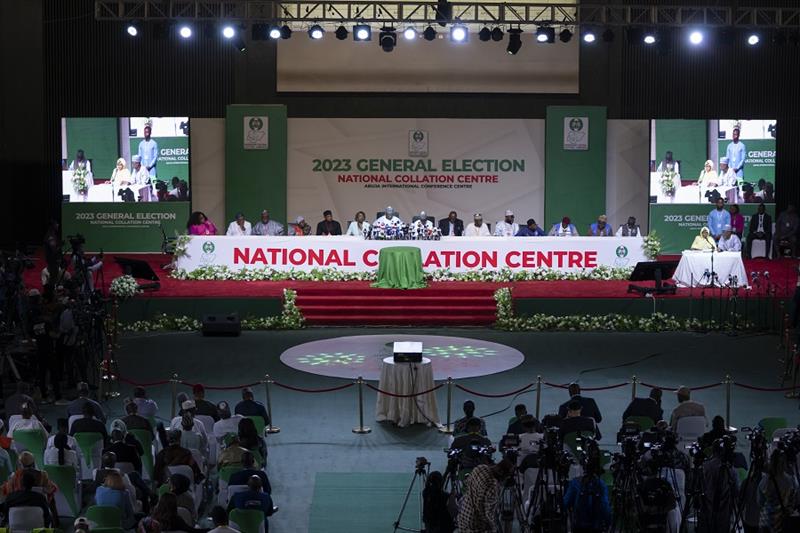
With 11 of Nigeria’s 36 states having reported as of Monday evening, ruling party candidate Bola Tinubu was leading with 46% of the 6.7 million counted votes so far. He was followed by the main opposition party candidate, Atiku Abubakar, who had 29%, and third party candidate Peter Obi, who had 20%.
In order to win, the candidate who leads the popular vote must also win at least a quarter of the votes in two-thirds of the states and the capital, Abuja.
Tempers flared Monday in Abuja where representatives of all the parties awaited the results. The two leading opposition parties claimed there were disparities between the results announced by the election commission and what their representatives learned at the polling stations.
“We are Nigerians and must defend our rights,” said Dino Melaye, a representative of the main opposition party, the People’s Democratic Party, led by Abubakar. Nigeria’s electoral law allows party representatives or agents to raise concerns about results while they are being announced by the election commission.
The country’s election chief, Mahmood Yakubu, dismissed claims of irregularities and said the results were authenticated by electoral officials.
Representatives for Nigeria’s ruling party accused the opposition parties of inciting violence and called on security forces to restrain them.
“If they don’t, a situation may well arise that none of us want, whereby people actually act on this incitement and begin to kill other people,” said Femi Fani-Kayode, former minister and part of the ruling party’s presidential campaign council. “And if that happens, I assure you it will be very difficult to restrain those on our own side not to retaliate.”
The ruling party pointed to Obi’s victory in the heavily coveted Lagos state, which is home to Nigeria’s largest city, Lagos, as proof that the vote was free and fair. It was a particularly hard loss for ruling party candidate Tinubu, who was once the governor of the state.
It was not immediately known how many ballots were cast in the other 25 states or which candidates stood to gain the most votes from those results.
After the last presidential election in 2019, it took four days for a victor to be declared. A runoff election will be held if no candidate secures at least a quarter of the votes from two-thirds of Nigeria’s 36 states and the capital city, in addition to receiving the highest number of votes.
On Monday, the African Union observer mission said voting had been delayed in more than 80% of polling units mainly because of logistical challenges caused by Nigeria’s currency swap program. The redesign of the Nigerian bank note, the naira, caused cash shortages nationwide, and voters and poll workers had difficulties getting to polling stations Saturday. Voters in some states had to wait until late in the evening to cast ballots, while in other states the election continued Sunday.
Observers from the missions of the African Union and the West African regional bloc known as ECOWAS said the election was generally “encouraging” except for isolated cases of violence that disrupted voting in some states.
Isolated cases of violence on election day led to the deaths of nine civilians, according to the Lagos-based SBM Intelligence company, pointing to a far more peaceful election than in previous years, when there were more deaths.
“Going by this trajectory, we are likely to have fewer deaths” during the election period compared to 2019,” said Confidence MacHarry, a security analyst with SBM
EU adds sanctions on Wagner for Africa ‘rights abuses’
The EU on Saturday announced additional sanctions against Russia’s Wagner mercenary organisation for “human rights abuses” in the Central African Republic, Sudan and Mali.
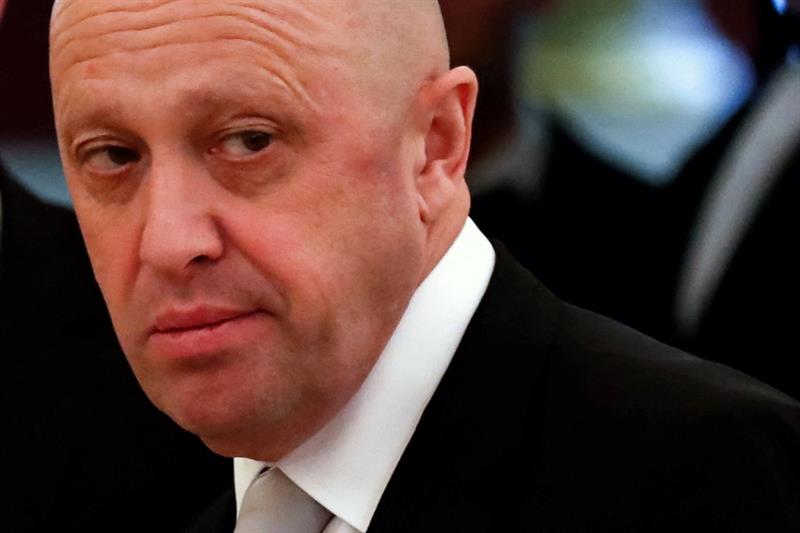
Eleven individuals and seven entities tied to the paramilitary group were added to the bloc’s list for asset freezes and a travel ban.
The Wagner Group itself — which is actively fighting in Russia’s war in Ukraine — was already sanctioned by the European Union in 2021.
US first lady to visit Namibia, Kenya in push to boost African ties
AFP , Tuesday 21 Feb 2023
US First Lady Jill Biden will visit Namibia and Kenya this week, senior administration officials said Tuesday, as the White House seeks an economic partnership with Africa contrasting Chinese investment and food shortages caused by Russia’s invasion of Ukraine.
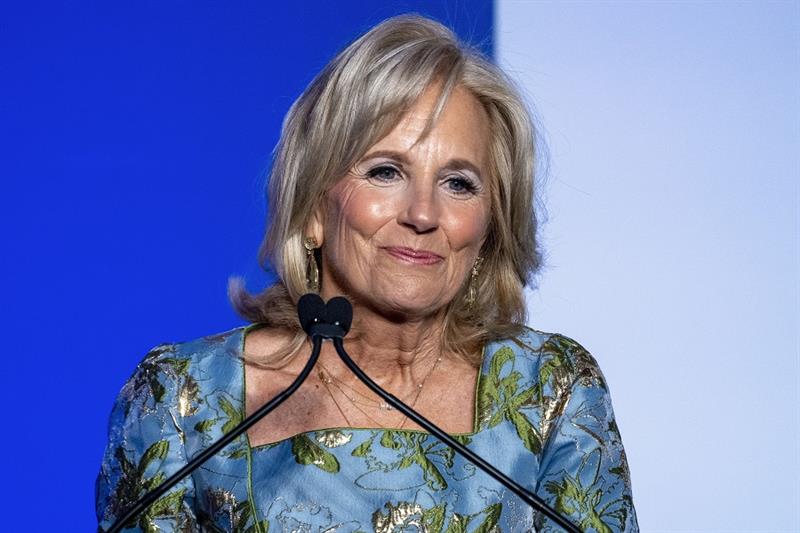
The first senior White House official to visit the region since her husband President Joe Biden came to power, the 71-year-old community college professor will focus on hunger in the Horn of Africa and the empowerment of women and youth.
The trip aims to build on the US-African Leaders Summit in Washington in December, when the president focused on food and global warming as well as preparing for the next global health crisis after the Covid-19 outbreak.
“The world faces major challenges including stresses caused by climate change, the lingering impact of the pandemic and the consequences of Russia’s invasion of Ukraine for food security and our shared values,” an official said.
“We believe African governments and people will and must be at the table for these consequential discussions. We can’t succeed without African participation and leadership.”
Biden opens the five-day tour in Namibia on Wednesday and will meet the first ladies of both countries.
In Kenya, she will draw attention to the Horn of Africa’s worst drought in decades, which has left more than 20 million people with acute food shortages.
Her fact-finding mission will look at how climate change, compounded by the blocking of food exports during Russia’s invasion of Ukraine, are worsening the crisis, officials said.
Sub-Saharan Africa is the youngest and fastest growing region in the world, with almost 70 percent of its people aged under 30. Experts project that a quarter of the global population will be African by 2050.
China in the past decade has surpassed the United States on investing in the continent via highly visible infrastructure projects, often funded through loans that have totaled more than $120 billion since the start of the century.
China denies US accusations it is imposing a “debt trap” in Africa and in turn has accused Washington of turning the continent into a geopolitical battlefield.
Officials said however the first lady was not expected to focus on the US-China rivalry during the visit.
“The purpose of the trip is to reaffirm the US government’s investments in Africa — not just in their governments, but in their people,” an official said.
South Africa’s ANC hails ‘encouraging’ summit ousting of Israel diplomat
AFP , Sunday 19 Feb 2023
South Africa’s governing ANC party on Sunday welcomed the “encouraging” expulsion of a senior Israeli diplomat from the African Union (AU) summit in Addis Ababa.

Sharon Bar-li, Israel’s foreign ministry deputy director general for Africa, was on Saturday escorted out of the AU assembly in the Ethiopian capital.
Israel accused arch-foe Iran of orchestrating the move with help from Algeria and South Africa.
Vincent Magwenya, spokesman for South African President Cyril Ramaphosa present at the summit, demanded that Israel “substantiate their claim”.
In a statement on Sunday, the African National Congress (ANC), which compares Israel to an “apartheid state”, gave clear support for Bar-li’s ousting.
The ANC said her removal was aimed at “thwarting an attempt to undermine the current sitting AU Summit from considering a report that is supposed to guide discussions on whether Israel must be granted an observer status”.
During last year’s summit, the AU failed to conclude talks on Israel’s controversial accreditation as an observer country. Algeria and South Africa were particularly opposed to it.
According to the spokesperson for the chairman of the AU Commission, Ebba Kalondo, the expelled Israeli diplomat had not been personally invited to the summit.
AU vows ‘zero tolerance’ to undemocratic change
AFP , Sunday 19 Feb 2023
The African Union insisted on Sunday it had a “zero tolerance” policy towards unconstitutional change as it maintained its suspension of four military-ruled countries.

The Sahel states of Burkina Faso, Guinea and Mali as well as Sudan were sanctioned by the pan-African body after coups in recent years but the AU said Sunday it was ready to help them return to democratic rule.
“The assembly reaffirmed zero tolerance against unconstitutional change (of government),” said the AU’s Commissioner for Political Affairs, Peace and Security, Bankole Adeoye.
“The Commission is ready to support these member states to return to constitutional order, the idea is that democracy must take root and must be promoted and protected,” he told a press conference on the final day of the weekend AU summit in Addis Ababa.
“It is necessary to re-emphasise that the AU remains intolerant to any undemocratic means to political power,” he added.
The regional Economic Community of West African States (ECOWAS) bloc also said it has maintained sanctions on the three Sahel countries.
West African leaders met on the sidelines of the AU summit to review the measures and discuss the progress in restoring civilian rule in the three states.
“The Authority of Heads of State and Governments decided to maintain the existing sanctions on all three countries,” the bloc said in a statement signed on Saturday but shared on Sunday.
ECOWAS has also decided to impose travel bans on government officials and senior leaders in those countries, it added.
Sanctions under the spotlight
Fearing contagion in a region notorious for military takeovers, ECOWAS imposed tough trade and economic sanctions against Mali, but lesser punishments against Guinea and Burkina Faso.
All three countries are under pressure by ECOWAS to return swiftly to civilian rule by 2024 for Mali and Burkina and a year later for Guinea.
Juntas seized power in Mali and Burkina Faso amid anger at the military over the toll from a jihadist insurgency that has claimed thousands of lives and forced millions from their homes.
The coup in Guinea had different causes, being rooted in public anger against then president Alpha Conde over a lurch towards authoritarianism.
Sudan has been gripped by deepening political and economic turmoil since the coup led by army chief Abdel Fattah al-Burhan in 2021 that derailed a short-lived transition to civilian rule following the ouster of Omar al-Bashir in 2019.
In an address to the summit on Saturday, AU Commission chairman Moussa Faki Mahamat said the pan-African bloc needed to look at new strategies to counter the backsliding of democracy.
“Sanctions imposed on member states following unconstitutional changes of government… do not seem to produce the expected results,” he said.
“It seems necessary to reconsider the system of resistance to the unconstitutional changes in order to make it more effective.”

